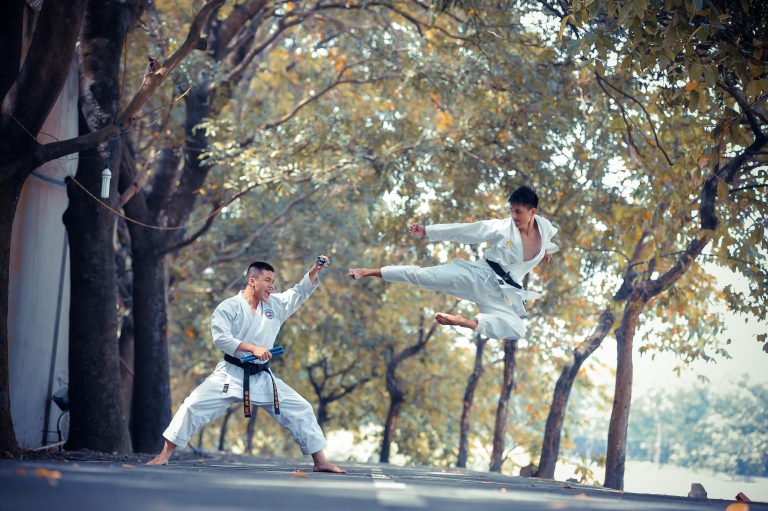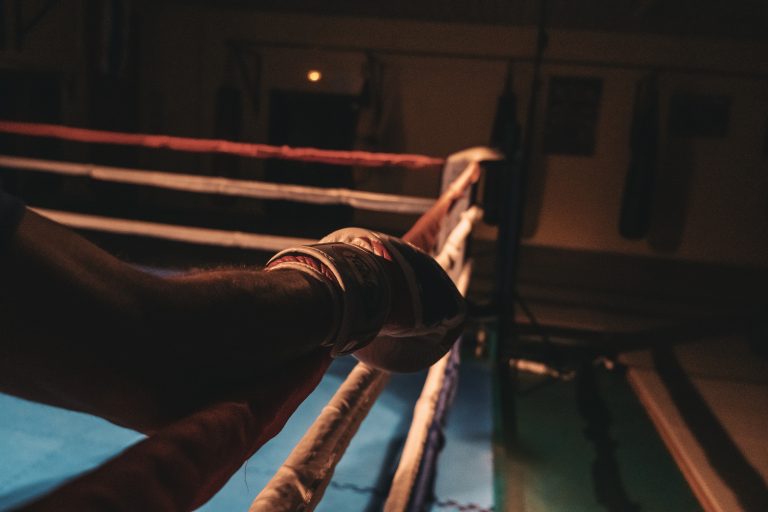How Can I Learn Karate By Myself?
Learning karate by yourself might seem like a daunting task, but with proper dedication and some guidance, it is definitely possible. While having an instructor is always recommended, it is not always feasible, and that is why this guide will give you some tips on how to learn karate by yourself.
1. Research the basics
The first step to learning karate by yourself is to conduct thorough research on the basics. You should start by learning about the history of karate, its basic principles, and stances. This will help you to develop a solid foundation and understand the philosophy behind karate. There are plenty of online resources that provide detailed information about the basics of karate, and you can also visit your local library to find books on the subject.
2. Watch videos
Watching videos of karate performances is an excellent way to learn how to perform the basic katas and develop an understanding of the techniques involved. You can find plenty of karate tutorial videos on YouTube, and platforms like Udemy and Coursera also offer a range of karate courses for beginners. While watching videos is not a substitute for proper training, it can help you to develop a basic understanding of karate techniques.
3. Practice regularly
The key to learning karate by yourself is to practice regularly. You should set aside some time every day to practice the techniques you have learned. Make sure that you practice in a safe environment and remember to warm up beforehand. It is also important to ensure that you are practicing the correct techniques and stances to avoid developing bad habits.
4. Use mirrors
Mirrors are an excellent tool for learning karate by yourself. They allow you to see your form and ensure that you are performing the techniques correctly. Before you start practicing, position yourself in front of a mirror and observe your form. This will help you to identify any areas where you need to improve and make adjustments accordingly.
5. Join online communities
Joining online communities of karate enthusiasts can be an excellent way to learn from others and get feedback on your techniques. Social media platforms like Facebook and Reddit have plenty of groups dedicated to karate, and you can also find forums and discussion boards where you can connect with others who are learning karate by themselves.
6. Attend seminars and workshops
Attending seminars and workshops led by experienced instructors is an excellent way to hone your karate skills and get feedback on your technique. Many karate organizations and schools offer beginner-level workshops and seminars that are open to everyone. When attending workshops, make sure you ask plenty of questions and take detailed notes to help you in your practice.
7. Be patient and disciplined
Learning karate by yourself is a process that requires a lot of patience and discipline. You should set realistic goals and work towards achieving them. Do not get discouraged if you are not progressing as quickly as you would like. Remember that everyone learns at their own pace, and progress comes with consistent practice over time.
Can I Learn Karate by Myself?
Karate is a fascinating and challenging martial art that has gained popularity all over the world in recent years. It is a physical and mental discipline that requires a great deal of dedication and hard work to master. Many people are interested in learning karate but may not have access to a dojo or a qualified instructor. The question arises: can you learn karate by yourself? The answer is not a straightforward yes or no, as it depends on several factors. In this blog post, we will explore some of the frequently asked questions surrounding the topic of learning karate by oneself.
What are the Benefits of Learning Karate by Yourself?
Learning karate by yourself can offer several benefits. Firstly, it can provide a sense of independence and self-motivation. By setting your own goals and schedules, you can tailor your training to your individual needs and preferences. Secondly, self-paced learning can allow for a deeper understanding of techniques and concepts. Practicing alone, you can focus on perfecting your moves without distractions or interruptions. Lastly, studying karate by yourself can be a convenient and cost-effective way to learn. You can avoid the expense of joining a dojo or hiring a tutor, and train in the comfort of your own home.
What are the Challenges of Learning Karate by Yourself?
Learning karate by yourself can also present several challenges. Firstly, without proper guidance, it can be difficult to learn correct techniques and avoid bad habits. This can lead to injury or slow progress. Secondly, practicing alone can be isolating and lack the camaraderie and support of a dojo community. Thirdly, without an instructor, it can be challenging to identify areas for improvement or gain feedback on your form. Lastly, it can be challenging to motivate oneself to keep training regularly and progress to higher levels.
Can I Learn Karate Online?
The internet has made learning karate more accessible than ever. Many online resources are available to assist you in your training, including instructional videos, forums, and online courses. However, it is crucial to be discerning when choosing online resources. Ensure that the instructor has proper credentials and qualifications, and that the content is suitable for your skill level. Additionally, seek out resources that offer interaction and feedback, such as online forums or live video classes.
What are Some Tips for Learning Karate by Yourself?
Here are some tips for those interested in learning karate by themselves:
1. Start with the basics: Begin with fundamental techniques such as basic punches, kicks, and blocks. Mastering these basics is crucial for advancing to more complex techniques and forms.
2. Establish a routine: Develop a regular practice schedule and stick to it. Try to practice at the same time each day and set goals for yourself to keep motivated.
3. Use online resources: As previously mentioned, the internet is a valuable tool for self-learners. However, be sure to choose reputable and trustworthy sources.
4. Find a training partner: Even if you are learning karate by yourself, practicing with a partner can be helpful. Consider finding a friend or relative who can help you practice and provide feedback.
5. Stay self-disciplined: Learning karate by yourself requires a great deal of self-discipline and motivation. Be sure to set achievable goals and push yourself to reach them.
Is it Possible to Master Karate by Yourself?
While it is possible to learn karate by yourself, it is important to note that mastery of karate is a lifelong journey that requires ongoing training and instruction. Without proper guidance and feedback, it can be challenging to reach the highest levels of mastery. However, learning karate by yourself can be a fulfilling and rewarding experience that can improve physical fitness, mental discipline, and self-esteem.
How to Learn Karate by Yourself: A Step-by-Step guide
Karate is a martial art that has been practiced for centuries in Japan and around the world. The art of karate focuses on developing physical and mental strength, agility, and flexibility. If you are interested in learning karate by yourself, here are some tips to get you started:
Step 1: Research and Understand the Basics of Karate
Before you begin your karate journey, it’s important to understand what karate is all about. Researching the basics of the art helps you to develop a deeper appreciation and connection with the martial art. You can start by reading books, watching videos, or even attending a class to get an idea of what karate is all about.
Step 2: Set Goals and Create a Routine
Once you have a basic understanding of karate, set goals for yourself. What do you want to accomplish? Develop a specific routine to help you achieve your goals. Your routine should have a mix of warm-up exercises, stretches, and basic karate techniques.
Step 3: Learn Basic Stances and Techniques
The first step to learning karate is understanding the basic stance and techniques. You can learn this by watching videos or attending a class. Stances are the foundation of karate, and they help you to maintain balance, stability and develop strong leg muscles. Basic techniques include punches, blocks, kicks, and strikes.
Step 4: Practice, Practice, Practice
Practice is essential when learning karate by yourself. It helps you to understand the basic techniques and perfect them. Repetition is key; practice your routine daily.
Step 5: Use a Mirror
Using a mirror helps you to observe yourself while practicing. You can use it to ensure that you are maintaining the right posture and position while performing the techniques.
Step 6: Join an Online Community
Joining an online karate community is also an excellent way to learn karate. You can connect with other karate enthusiasts and receive feedback on your techniques. You can also learn new techniques and get help with any problems you may encounter.
Step 7: Don’t Forget to Warm-up and Stretch
It’s essential to warm-up and stretch before starting any karate routine to prevent injury. Warm-up exercises such as jogging, jumping jacks, push-ups or stretches like the butterfly stretch, neck stretches, and the hamstring stretch will help you prepare your body for the routine.
Step 8: Set Realistic Goals
Remember to set realistic goals. It’s important to understand that you won’t become an expert in karate overnight. Take time to learn and focus on perfection rather than speed.
Step 9: Attend a Class
Finally, attending a karate class is another great way to learn karate. It is important to get feedback from an experienced instructor who can guide you through the techniques while providing feedback on your performance.
In conclusion, learning karate by yourself can be a rewarding experience. By following these simple tips outlined above, you can become proficient in karate, improve your physical and mental strength, and enhance your overall wellbeing. Remember to always put your safety first, and if you encounter any difficulties, seek expert advice.
Inhaltsverzeichnis





